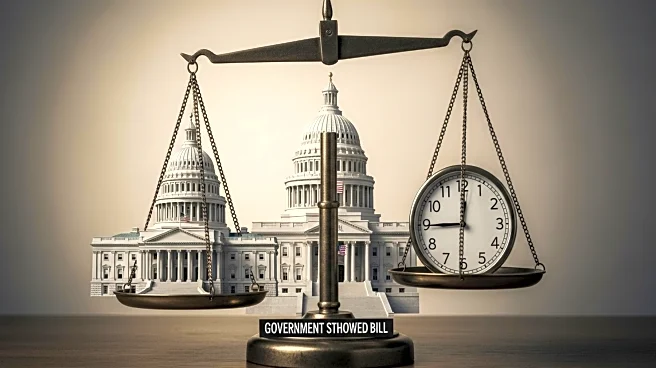What's Happening?
The Trump administration has appointed Frank Bisignano, the Social Security Administration Commissioner, as the IRS's chief executive officer, a role that does not formally exist at the tax agency. Treasury Secretary Scott Bessent announced the appointment, which sidesteps the Senate confirmation process. This move aims to fill a leadership vacuum at the IRS as it prepares for the filing season and integrates changes to tax law from the GOP's recent legislation. Bisignano's appointment follows a series of leadership changes at the IRS, with previous commissioners serving short terms due to various challenges.
Why It's Important?
The appointment of Bisignano to lead both the IRS and SSA is crucial as it addresses the leadership vacuum at the IRS during a critical period. The IRS is tasked with implementing significant tax law changes, and effective leadership is essential for smooth operations. However, the decision to bypass Senate confirmation raises concerns about governance and oversight, as the IRS oversight board has been inactive. This move may impact the agency's ability to manage its responsibilities effectively, potentially affecting taxpayers and public trust.
What's Next?
The appointment may lead to increased scrutiny from lawmakers and advocacy groups concerned about the management of both agencies. The IRS must prepare for the upcoming tax season and address its leadership challenges, while the SSA continues to face issues related to staffing and service delivery. Stakeholders may call for more transparency and accountability in the management of these agencies, potentially influencing future appointments and governance practices.
Beyond the Headlines
The dual appointment of Bisignano highlights broader governance issues within federal agencies, particularly the balance of power and accountability. The decision to bypass Senate confirmation for the IRS CEO role may set a precedent for future appointments, impacting the oversight and management of government functions. Additionally, the focus on technological improvements at both agencies underscores the importance of digital transformation in enhancing public service delivery.










